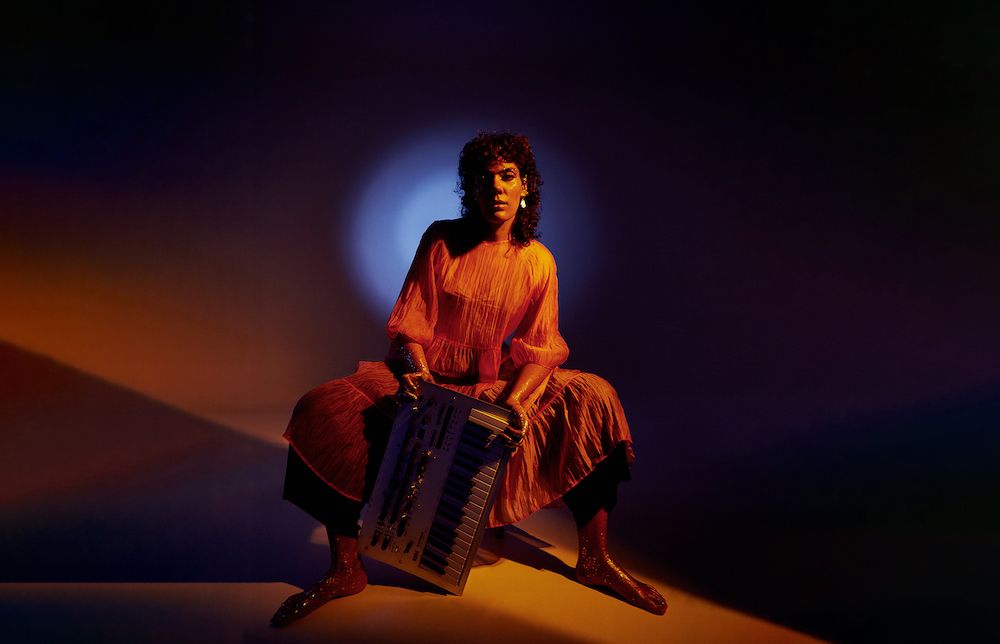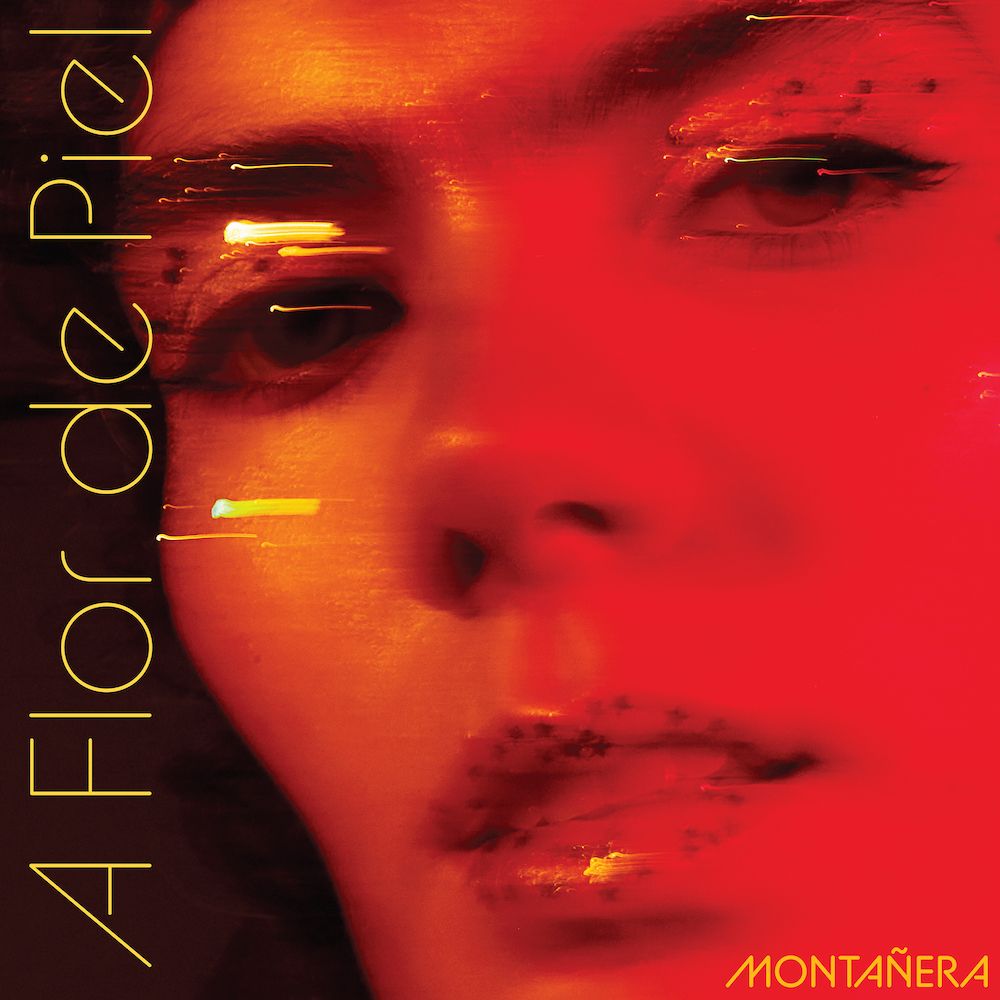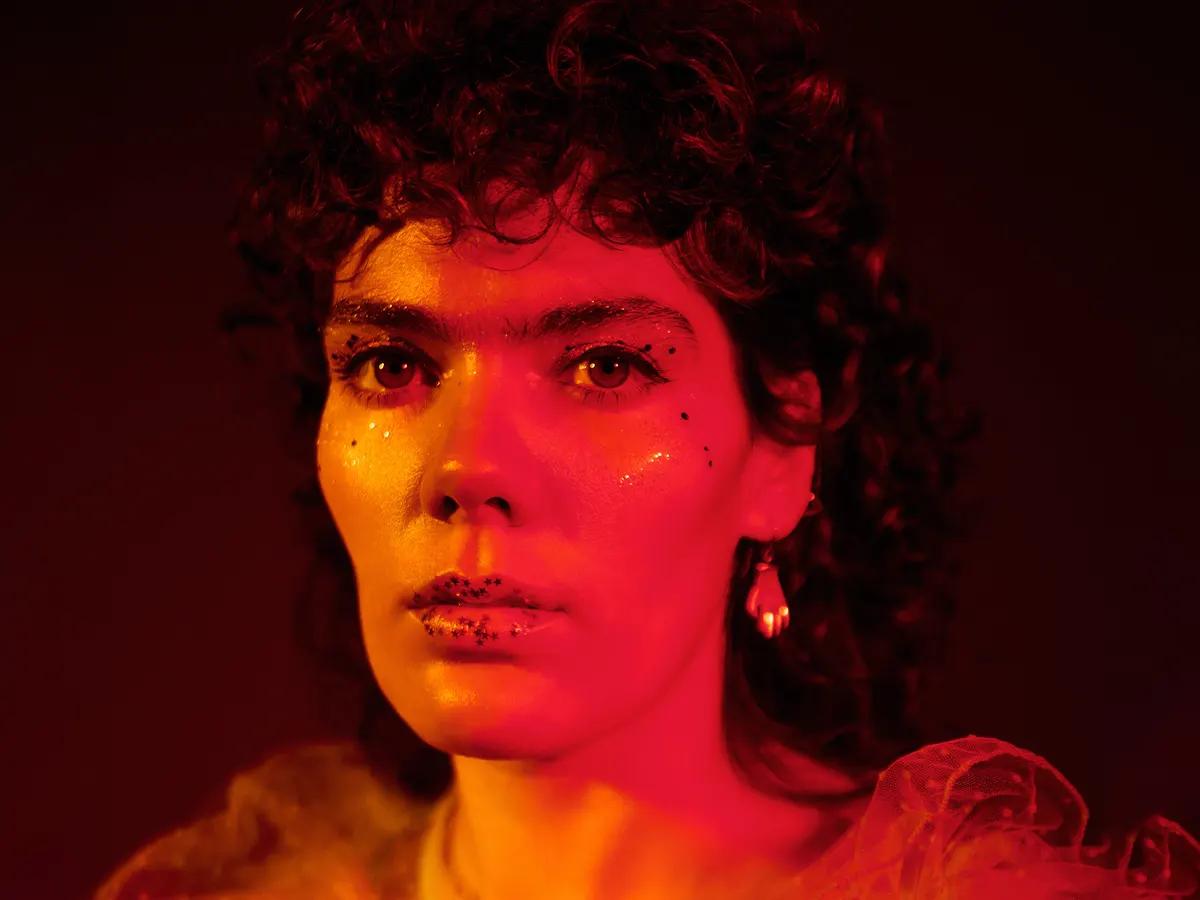
The incredibly talented María Mónica Gutiérrez hails from Bogota, Colombia, and originally relocated to these shores in order to study for a Masters degree in music. Sadly what should have been an exciting upheaval for the young creative coincided with the beginning of the global pandemic that shut down the world, and rather than diving into the social scene of our nations' capital, the musician found herself confined to a room for months on end with only her syhnthesizer for company. Luckily for us, her experience of feeling both isolated and adrift led her to embark on a profound journey of inner discovery that has resulted in her recently released self-reflective and ethereal masterpiece 'A Flor de Piel' which translates as 'flowered skin'. It's a title that is is apt for a meditative and minimalist work of immense delicacy that feels almost more like a presentation of spiritual mantras as it does a collection of songs – the ambient universe contained within being one of intricately layered harmonies, and enchanting melodies that seem to invite the listen to step outside the stream of time. Here the singer, who is preparing to make her debut at London's Southbank Centre, discusses the genesis of her sparse of beautiful offering to the cosmos, the dynamism of nature, and the power of music as a tool for both healing and self-knowledge.
What was the genesis of A Flor de Piel, and where does its ethereal melancholic mood stem from?
This album was made when I arrived in London during the pandemic, and it was an intense and challenging moment for me. I was stuck in my room for six months. I guess the melancholic mood on the record started then, and those emotions came through in the music. Much of the music I had made before was more joyous, and more pop, but that experience of isolation led me to really connect with myself. What was really beautiful was that I got to connect with the synth in a very deep way. In Colombia, I had everything available – musicians, producers, and so on – but when I came here I only had the synth, and I felt I really had to just delve into it and go deep. I discovered a new way of making music and a new passion, because now I'm really passionate about synths and this kind of minimalist sonic world. I just began to understand so many things about myself navigating that moment in the pandemic, and the songs became very much about transformation, evolving, and being kind of reborn.
The album returns many times to the natural world – why does nature provide such a strong motif for the journey of self-discovery on the record?
One thing that has always been present in all my lyrics across the music I've done throughout my life is that I feel very connected with the dynamics of nature and how those dynamics also present in our own human and personal relationships with both others and ourselves. On the song
"Me Suelto Al Riesgo", for example, I wanted to evoke this feeling I had of being in this strange middle point between London and Bogota, because I really felt like I was in the middle of these two places – I wasn’t in Bogota anymore, but I wasn’t really in London either, because I was just stuck in my room. The physical middle between the two would be the middle of the Atlantic Sea, so I wanted to transmit this atmosphere of the whole track being under the sea. I needed to go deep and sink myself in the emotion I was feeling to evoke the singing of whales, and the sounds that maybe you could listen to if you were under the sea. The whole album is about these dynamic processes of transformation. The song "Un Día Voy A Ser Mariposa" (One Day I’ll Be A Butterfly), for example, talks about how one day I'll be a butterfly. I've always been really inspired by nature, and the metaphors for life that exist in nature.

Would you describe yourself as a deeply spiritual person?
Definitely. It's nice that you get that feeling from the music because I've never been interested in my music being explicitly about that – I don't want to be preaching, or anything like that, really. I am very spiritual, and I became much more spiritual because of the moment I was living through when I made the album, which is why it is very deep and intense, but also with some light and hope in there. I definitely became much more in touch with my spirituality and my personal meditation practice in these last couple of years, and I am now trying to make music that the audience can connect with in a spiritual way if they want to, but that whole thing is really open – I'm not saying like, oh, I'm making this healing music, or spiritual music, or anything at all like that. I just make music that connects me with my spirituality.
There is something primal about the repetition you employ in both the music and the lyrics - do you see music as a tool for transcendence?
Yeah. I’m definitely trying to reach for something transcendental or superior through my voice and these ambient landscapes. I think ambient and minimalist electronic music is similar in some ways to the traditional music of the world - it has parallels with the repetition in traditional drumming music from Colombia, for example, or singing music from the Afro Colombians in the Caribbean. It has this almost ceremonial nature that can be meditative as well. I've been really interested in traditional music ever since I started singing, and it's nice to find a similar sensation and a similar dynamic with the synthesizer. My whole definition of beauty has been changing throughout the process of this record. For example, now I find the little electronic glitches or mistakes or errors very beautiful … I want to create noise, but with this very ethereal voice on top of it.

There is a meditative quality to the whole album, and some of the songs feel almost like mantras …
Yes. The song "Cruzar" (Crossing), for example, is made almost as a personal mantra for me to remember and have in my mind the things that are important to me – breathing and healing, and crossing internal bridges and borders. It's very, very repetitive. The synth is doing exactly the same thing for the whole song, and the lyrics also repeat. It's like a personal reminder of things that I want to be connected to, and things that are really important to me. It can happen to all of us that we just get distracted in the day-to-day, and we get so involved in the chatter of the mind. I am always trying to create something beautiful in my music, in the sense that it explores how you can live a calmer life – one that is more connected to the dynamics of life, which are always changing and transmuting, with things dying; things being born. I’m trying to bring a little bit of that truth into the music.
Find out more about Montañera here
Montañera plays The Southbank Centre Nov 30th, London